Filter by
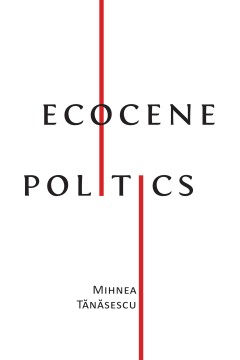
Ecocene Politics
Anchored in the diverse ecological practices of communities in southern Italy and Aotearoa/New Zealand, this book devises a unique and considered theoretical response to the shortcomings of global politics in the Ecocene—a new temporal epoch characterised by the increasingly frequent intrusion of ecological processes into political life. Dismantling the use of the term ‘Anthropocene’ as a…
- Edition
- -
- ISBN/ISSN
- 978-1-80064-316-1
- Collation
- vii, 195p.
- Series Title
- -
- Call Number
- 363.7 TAN e
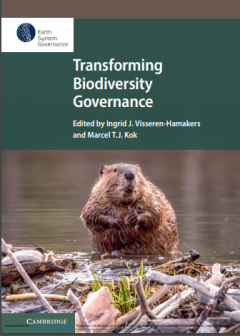
Transforming Biodiversity Governance
Over fifty years of global conservation has failed to bend the curve of biodiversity loss, so we need to transform the ways we govern biodiversity. The UN Convention on Biological Diversity aims to develop and implement a transformative framework for the coming decades. However, the question of what transformative biodiversity governance entails and how it can be implemented is complex. This bo…
- Edition
- -
- ISBN/ISSN
- 9781108856348
- Collation
- xviii, 390p,: ill
- Series Title
- -
- Call Number
- 346.04695 ING
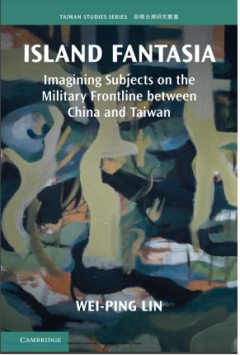
Island Fantasia
The Matsu archipelago between China and Taiwan, for long an isolated outpost off southeast China, was suddenly transformed into a military frontline in 1949 by the Cold War and the Communist-Nationalist conflict. The army occupied the islands, commencing more than 40 long years of military rule. With the lifting of martial law in 1992, the people were confronted with the question of how to move…
- Edition
- -
- ISBN/ISSN
- 9781009023481
- Collation
- xvii, 330p, ill
- Series Title
- -
- Call Number
- 951.249 WEI

The Right to Science
That everyone has a human right to enjoy the benefits of the progress of science and its applications comes as a surprise to many. Nevertheless, this right is pertinent to numerous issues at the intersection of science and society: open access; 'dual use' science; access to ownership and dissemination of data, knowledge, methods and the affordances and applications thereof; as well as the role …
- Edition
- -
- ISBN/ISSN
- 9781108776301
- Collation
- xi, 324p,: ill
- Series Title
- -
- Call Number
- 342.0853
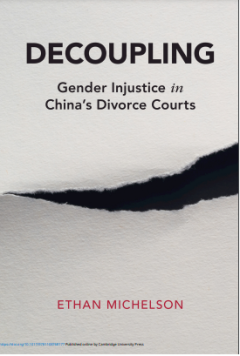
Decoupling: Gender Injustice in China's Divorce Courts
Michelson's analysis of almost 150,000 divorce trials reveals routine and egregious violations of China's own laws upholding the freedom of divorce, gender equality, and the protection of women's physical security. Using 'big data' computational techniques to scrutinize cases covering 2009–2016 from all 252 basic-level courts in two Chinese provinces, Henan and Zhejiang, Michelson reveals tha…
- Edition
- -
- ISBN/ISSN
- 9781108768177
- Collation
- xiii, 574p,: ill
- Series Title
- -
- Call Number
- 306.8930951 ETH

The Power of Standards
Standards often remain unseen, yet they play a fundamental part in the organisation of contemporary capitalism and society at large. What form of power do they epitomise? Why have they become so prominent? Are they set to be as important for the globalisation of services as for manufactured goods? Graz draws on international political economy and cognate fields to present strong theoretical arg…
- Edition
- -
- ISBN/ISSN
- 9781108759038
- Collation
- vii, 270p : ill
- Series Title
- -
- Call Number
- 658.562 JEA
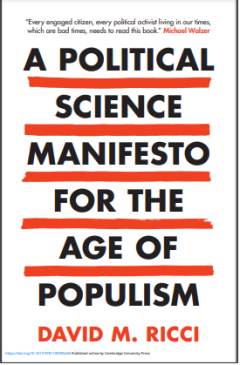
A Political Science Manifesto for the Age of Populism
Populism and authoritarian-populist parties have surged in the 21st century. In the United States, Donald Trump appears to have become the poster president for the surge. David M. Ricci, in this call to arms, thinks Trump is symptomatic of the changes that have caused a crisis among Americans - namely, mass economic and creative destruction: automation, outsourcing, deindustrialization, globali…
- Edition
- -
- ISBN/ISSN
- 9781108785440
- Collation
- x, 258p: ill,
- Series Title
- -
- Call Number
- 320.473 DAV
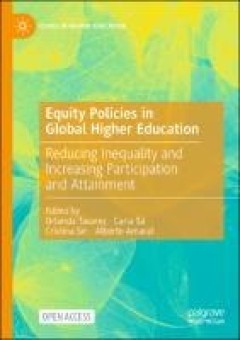
Equity Policies in Global Higher Education
This book discusses and analyses global policies and practices aimed at promoting equity in higher education participation and attainment. Although the massification of higher education systems has facilitated the participation of students from deprived backgrounds, socioeconomic inequalities persist in access to the most prestigious institutions and programmes. Privileged students benefit from…
- Edition
- -
- ISBN/ISSN
- 9783030696917
- Collation
- xvii, 245p. : ill,
- Series Title
- -
- Call Number
- 379.26 EQU e

Illiberal trends and anti-EU politics in East Central Europe
This open access book provides an in-depth look into the background of rule of law problems and the open defiance of EU law in East Central European countries. Current illiberal trends and anti-EU politics have the potential to undermine mutual trust between member states and fundamentally change the EU. It is therefore crucial to understand their domestic causes, context conditions, specific p…
- Edition
- -
- ISBN/ISSN
- 9783030546748
- Collation
- xx, 353p ; ill
- Series Title
- -
- Call Number
- 320.3 MIC i

The limits of the legal complex : nordic lawyers and political liberalism
This insightful volume provides a comprehensive account of the history and politics of lawyers of the last 200 years in the Nordic countries: Norway, Sweden, Denmark, Finland, and Iceland. Topping most global indexes of core civil rights, these states have been found to contain few to no visible legal complexes. Where previous studies have characterized lawyers as stewards and guardians of the …
- Edition
- 1
- ISBN/ISSN
- 9780192848413
- Collation
- 27p
- Series Title
- -
- Call Number
- 342 FEE t
 Computer Science, Information & General Works
Computer Science, Information & General Works  Philosophy & Psychology
Philosophy & Psychology  Religion
Religion  Social Sciences
Social Sciences  Language
Language  Pure Science
Pure Science  Applied Sciences
Applied Sciences  Art & Recreation
Art & Recreation  Literature
Literature  History & Geography
History & Geography